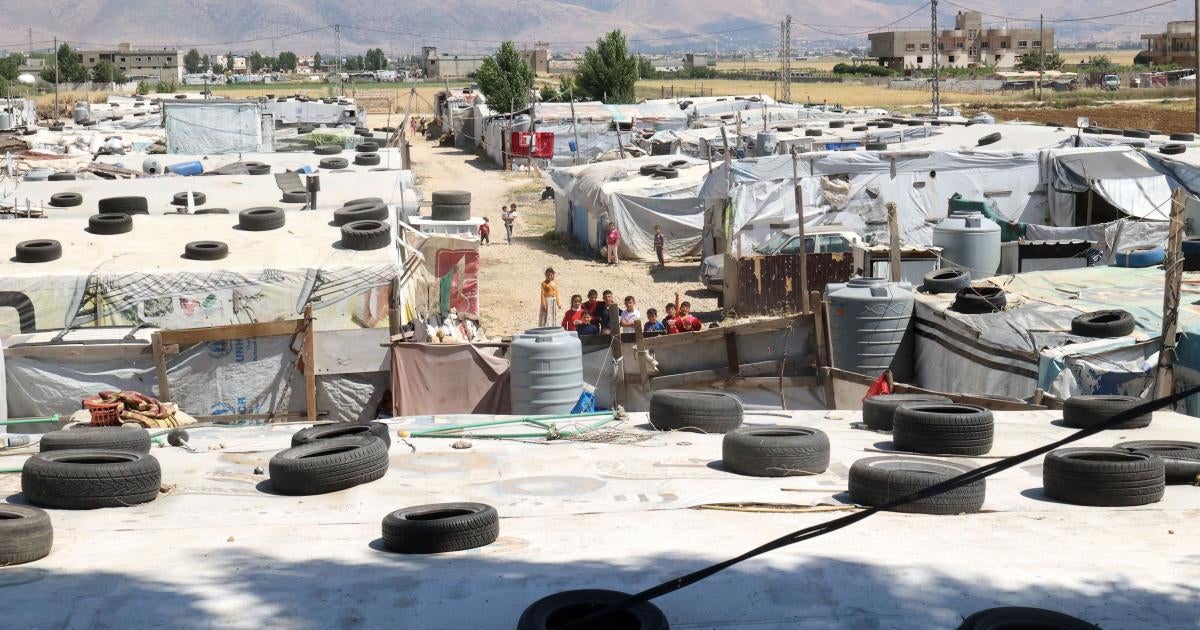* This article was published in collaboration between the Syrian Kurdish Journalists Network (SKJN) and SOR Magazine as part of the "Mirror" project, focusing on Human Rights and Public Freedoms. It can be accessed here.
Syrian refugees in some neighboring countries, particularly Turkey and Lebanon (which took in large numbers of them after the Syrian revolution and the violent repression by the regime), are now subjected to violent and organized campaigns aiming to forcibly return them to Syria. This situation poses significant and serious dangers to their lives and the lives of their families, making them go from the proverbial "frying pan into the fire."
The term "voluntary return" is often used in Turkish or Lebanese media, and even in Syrian regime media, as a facade. Those who wish to return voluntarily do not need any invitation or pressure to do so.
The conditions for refugees in these two countries were never ideal. In Lebanon, refugees lived in inhumane conditions in miserable camps, enduring hardships and racism from certain political groups, just to save themselves and their families from ongoing massacres. Syrian refugees in Turkey faced less severe but still significant racism and restrictions on their work and livelihoods. Young people were also exploited in military conflicts ignited by Erdogan's regime in Libya, Nigeria, Azerbaijan, and other places, sent as mercenaries without rights or recognition if killed in battles for Erdogan.
In Jordan, many cases of exploitation of Syrian refugees, including trafficking and extortion by international organizations, have been reported.
In contrast, European and Western countries (especially Germany) displayed civilizational, societal, and political differences in welcoming large waves of Syrian refugees, providing them with decent living conditions and attempting to integrate them into their new societies. This was especially after it became apparent that a political solution in Syria was far off due to efforts by regional and international powers to rehabilitate the regime.
Syrian refugees, estimated at around 6.5 million, are spread across more than thirty countries. The largest number, 3.6 million, is in Turkey, according to the UNHCR. Lebanon claims to host 2.8 million refugees, roughly equivalent to its population, while the UNHCR states that 840,000 registered Syrian refugees are in Lebanon. The discrepancy is due to Lebanon’s desire to inflate the numbers for international aid and to fuel local and international sentiment for their expulsion. Additionally, many refugees entered Lebanon illegally due to war conditions and fear of Syrian authorities.
Jordan hosts about 800,000 refugees, Iraq about 400,000 (mostly in Kurdistan), and Egypt around 200,000. In Western Europe, Germany leads with approximately 700,000 refugees, followed by Sweden and other countries. Inside Syria, about seven million people are internally displaced.
A Brief History of Refugeehood
The 1951 Refugee Convention defines a refugee as someone who, owing to well-founded fear of persecution for reasons of race, religion, nationality, membership in a particular social group, or political opinion, is outside their country of nationality and is unable or unwilling to avail themselves of the protection of that country.
Refugeehood is not a new phenomenon. History is replete with mass displacements due to religious or ethnic discrimination, wars, political upheavals, and disasters. Thus, societies, states, and organizations have tried to regulate this phenomenon through laws since ancient times.
The term (Asylos) in Greek civilization referred to a sanctuary beyond state control, governed by the gods, providing refuge to those fleeing injustice. Similarly, in Islamic and pre-Islamic eras, customs like (Jawar) allowed tribes to protect those seeking refuge.
In modern times, interest in refugees increased post-World War II, leading to the establishment of international organizations for their protection. The UNHCR, founded in 1950, focuses on providing aid and protecting refugees globally.
It helped establish the 1951 Geneva Convention, covering refugees' essential rights like residence, education, and healthcare. Although not initially universal, it now has 149 signatories, with many Middle Eastern countries abstaining due to various reasons.
The Moral Dilemma of Forced Returns
Countries attempting to forcibly return refugees must consider: To what are these victims returning? A devastated country with ruined villages and cities, abysmal services, no electricity, no fuel, and deteriorating living conditions bordering on famine. Public employees earn around 350,000 Syrian pounds ($22), while basic living costs exceed 10 million pounds ($700).
The regime continues its oppressive policies, and without genuine political solutions as per UN Resolution 2254, forced returns would lead to new massacres and exacerbated suffering. Therefore, forced deportation is a crime committed by Turkey with Russian and Iranian support, and by the Lebanese regime influenced by Hezbollah.
What Can Be Done?
With the worsening refugee crisis, the only acceptable, humane solution aligned with human rights and international law is immediate direct negotiations, internationally sponsored (not by Iran, Turkey, or Russia), based on Resolution 2254, to end the Syrian tragedy and rebuild a free, healthy nation.
---
* This material is published in collaboration between the Syrian Kurdish Journalists Network (SKJN) and SOR Magazine as part of the "Mirror" project, focusing on “Human Rights and Public Freedoms.”


